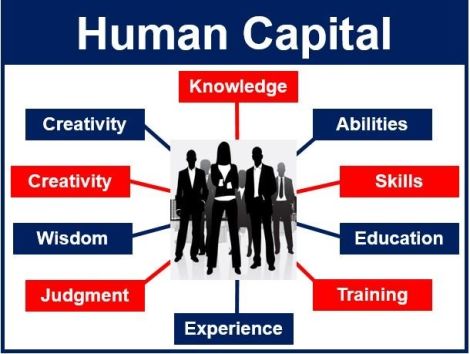
Apparently, all of these things in the above picture is what defines the term, Human Capital. My wife’s work has made changes with partnerships and now she suddenly works for another company that is managing a few departments that were previously all under one roof. Their paperwork and announcements, etc. all talk about Human Capital.
I personally sort of think it is just a slick rebranding of the slave trade, however one cannot use humans as legal tender to pay for products anymore, as in four chickens for one cow, or three cows for one slave, so maybe the slavery analogy is incorrect. But what it does is this:
It devalues the relevance of what the word Employee means. A PERSON who does compensate work for a business.
Human Capital opens up other avenues of disassociation from working relationships with your employee human capital. It makes eliminating resources, relocating forcibly, reassigning assets, and easy dissatisfaction with any results from your unsupported human capital assets quite the more popular ways of managing said Humans. Employees with names, Human Capital, assets.
What do you want to be? An employee? Or a valued Human Capital asset. What makes you feel more loved and valued and more willing to work?
I’m an employee with a Fortune 500 company that is regularly noted for having an effect. I get treated great, and therefore I treat my customers great and they will like that and come back for more. That is the effect we have and hardly anyone else does things that way. That would never happen if I was treated like a Human Capital asset. I would have a daily middle finger to that approach.